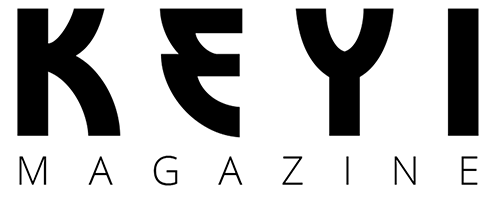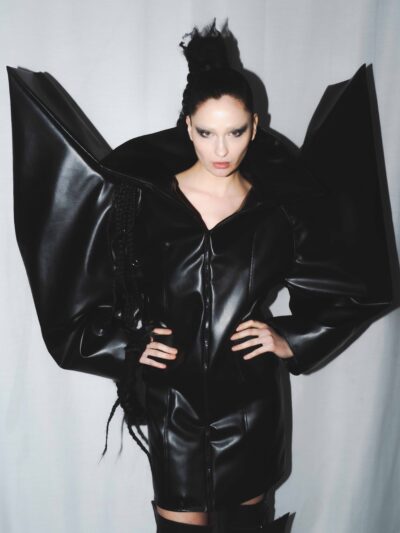Ernest Em is a photographer based in Paris. Since 2015, he has used the stage name 19TONES in his work and artistic expression. 19TONES is a persona and creative mindset. Growing up as a Korean-Russian and studying in Moscow, he describes his work as individual creations for those intertwined with the realms of art and visual culture. He strives to convey ideas and concepts through imagery and light manipulation.


Can you tell us about your journey as a photographer? How did you get started, and what inspired you to pursue photography as a career?
My journey as a photographer began in 2015 when I completed my first Bachelor’s degree in engineering. After graduation, I had a three-month break from June to September to enjoy some time off from work and studies. I planned to purchase an action camera to capture lifestyle videos and travel to Sri Lanka or Bali to indulge in some surfing. However, this trip didn’t materialize for various reasons. As a recent graduate with savings in hand, I decided to buy a DSLR camera, which seemed more practical for urban life.
My introduction to photography started with me simply taking pictures of the city, a genre often referred to as Urban Exploration. I spent hundreds of hours, without exaggeration, editing photos. This was an entirely new experience for me since I had never dabbled in the world of photography before. Over time, it evolved into my passion, and I would carry my camera with me every day, often processing photos in late-night cafes until the early hours. It was an unforgettable period in my life.
I documented all my results on Instagram, where I found my first community of photographers from around the world who shared a similar genre. Feedback on my photos was genuinely inspiring, and, for me, it was a significant challenge and risk to transition into a photographer’s role after graduating from university. This played its role in motivating me to pursue this path.


Could you share some of your favorite photography projects or experiences? What made them special or unique?
One of my favorite projects is the Nite Jogger project that I created for Adidas in 2019.
https://19tones.com/adidas-‘nite-jogger’
(see above )
The uniqueness of this project was that I wasn’t just a photographer; I was an artist. There were no creative boundaries for our shots. We had one goal: to be inspired by the product’s story and the product itself. In the end, we organized a photo exhibition event, and created a special neon installation for a photo zone where I conducted a live performance. Guests could see what I saw through my camera’s viewfinder. In other words, we went beyond conventional photography in this project.
Another project was for Porsche Taycan, where I had creative freedom as well. I had to create images that could describe the qualities of the car as I saw fit. In this project, I used the long exposure technique to simulate electricity and lightning. Here, we once again challenged traditional commercial photography because it’s usually not something you can achieve easily.
https://19tones.com/porsche-taycan
(see below)
And, of course, I can’t forget the projector shots. In these photoshoots, there’s no specific product involved. For such shoots, I work closely with typography and calligraphy.
https://19tones.com/’synopsis’-album-cover
https://19tones.com/atzen-skin-care
https://19tones.com/tag-in-fest-x-pokras-lampas


How do you approach the creative process when planning and executing a photoshoot or project? What factors do you consider when conceptualizing your work?
In commercial shoots, I’m accustomed to meticulously planning every detail. It typically begins with a creative treatment or presentation where I describe the thought process behind the project. This might include the works that inspired my creativity, specific model poses, and body placements (created in 3D software) and concludes with concrete visuals. Sometimes these presentations can be as extensive as 100 pages, without exaggeration.
For editorial shoots, a mood board is often sufficient, and improvisation takes place on set.
It’s always crucial not to forget what you’re shooting and to pay attention to the details. My team and I also thoroughly plan everything down to the finest details. Often, our ideas require testing and pre-shooting, but sometimes we take risks and skip that step. In those cases, it requires a bit more time to execute the project.
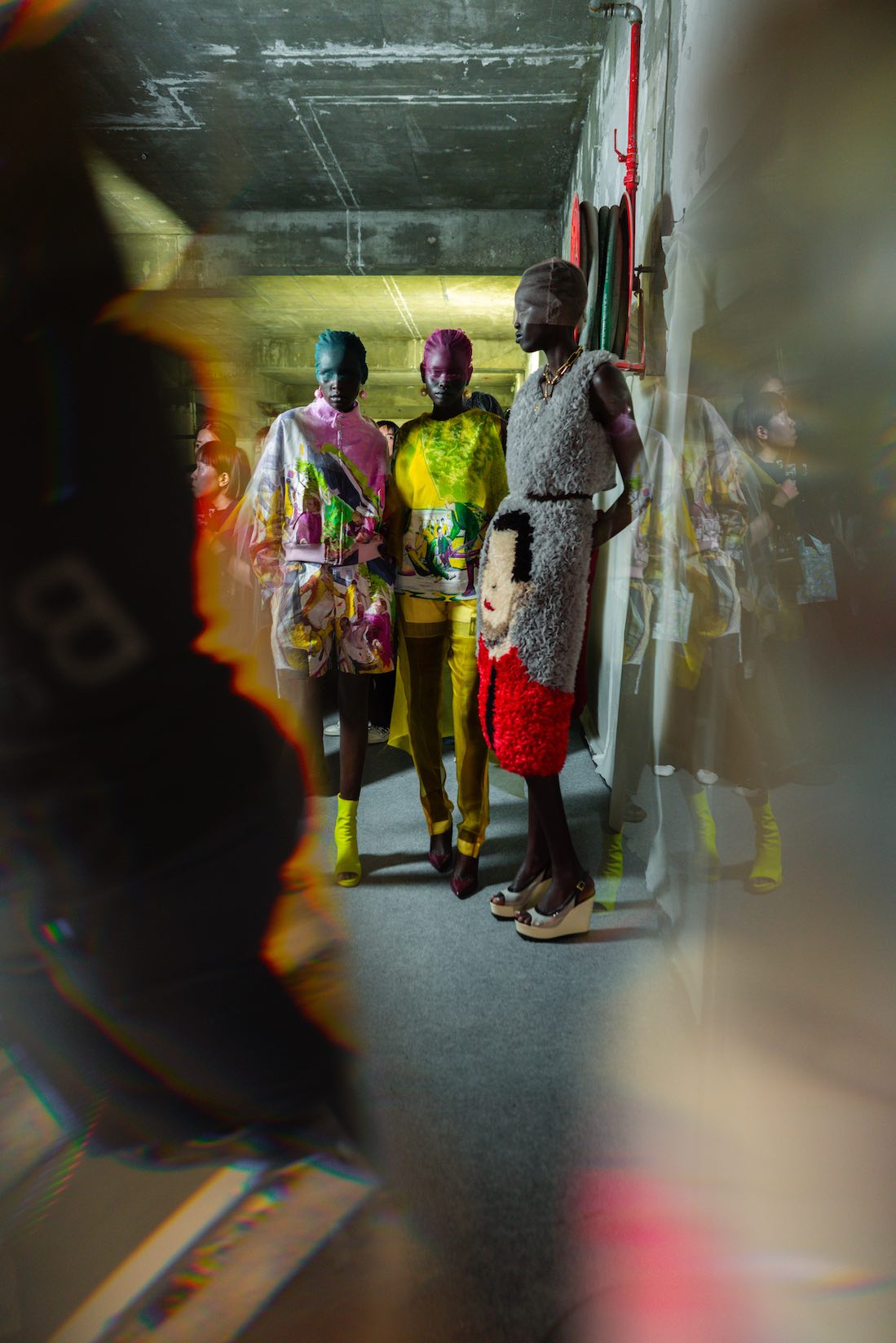

What is your favorite piece of equipment or camera gear, and why do you prefer it for your photography?
I enjoy working with both flash and continuous light because light in photography is paramount. As for the camera, I’ve been using the A7RIII for nearly 5 years. I don’t feel the need to upgrade it; I only need to service it in terms of repairs. However, over the past year, I’ve come to realize that Sony cameras are designed more for content creators than photographers. Whether you like it or not, you’ll be paying for the video features of the camera. Because of this, using these cameras has become increasingly challenging. They have complex menus, numerous buttons, and indicators on the screen.
The A7RIII is a camera I’ve always been confident in; it has never let me down in terms of technical requirements for photography. But lately, I’ve been thinking more about switching it or maybe even the entire camera system. I want the tools I use to be lightweight and inspiring, to offer more tactility in camera use, and to be easy to operate.


Lighting is a critical element in photography. Can you share your insights on how you work with natural and artificial light to achieve your desired results?
I rarely use natural and artificial light simultaneously. It’s either one or the other.
When working with clients, it’s almost always artificial light. During pre-production, I use applications that simulate various lighting setups, allowing me to visualize the overall picture and determine the type of lighting we’ll need.
I prefer working with a light technician, as many photographers do, so I can focus on the process of creating the shots.
In my personal projects, I can occasionally use natural light, but it doesn’t happen very often.
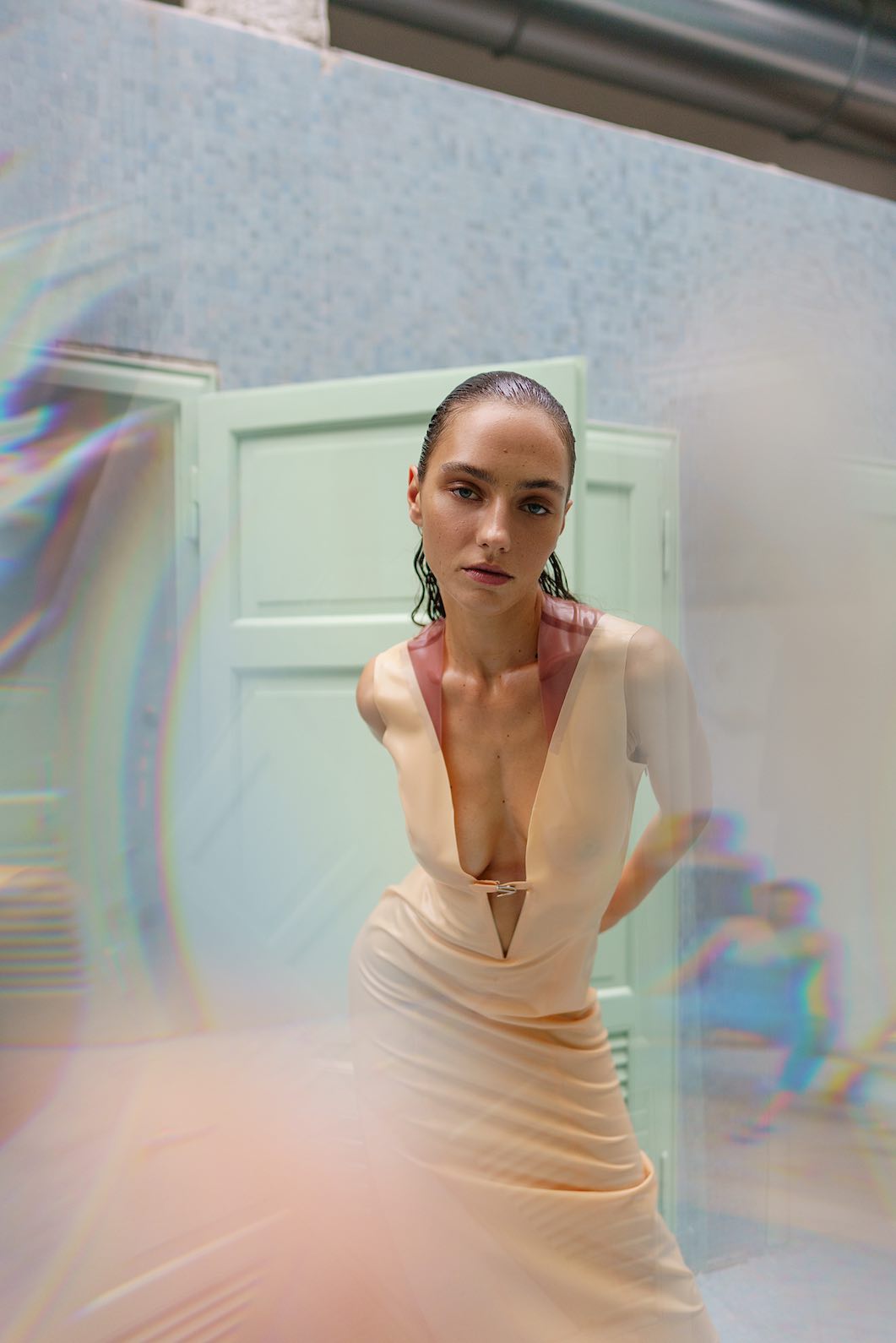

What challenges have you faced as a photographer, and how did you overcome them? Are there any memorable stories or lessons you can share?
I grew up in a fairly conservative family where my parents placed their hopes on education, university, and getting a diploma. They naturally expected me to work in a field related to my degree. However, I started pursuing photography right after graduating from university, and it was challenging for me to show them that it’s a valid profession, that one can make a living from it, and that I genuinely enjoyed it. This served as my motivation, and I just continued with photography. You know, I’m sometimes the type of person who wants to defy any preconceived notions about themselves, seeing it as a challenge.
I always wanted to be part of a professional community where there are not only photographers but also other artists. It often felt like I wasn’t being “accepted” or simply went unnoticed. This can be discouraging and make you doubt what you’re doing. However, it’s essential not to compete with anyone here; it’s not a sport. Art and photography are subjective things, and you should only compete with yourself.
Perhaps, that was the most challenging aspect of my career. Over the years, things normalized, and I simply decided to continue doing what I love. As an artist, my job is to create.
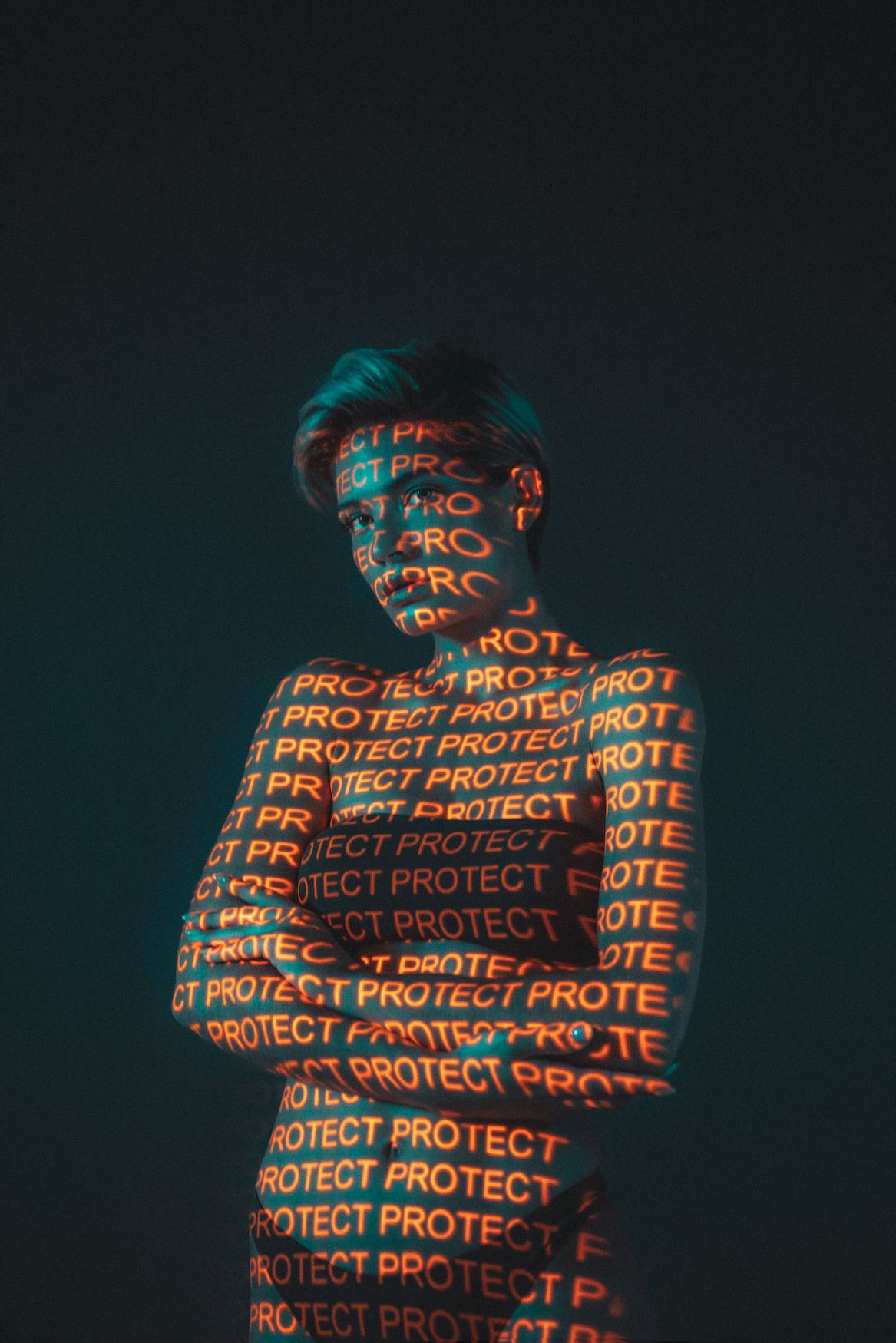
Can you discuss the significance of storytelling in photography? How do you use your photos to convey a narrative or evoke emotions in your audience?
To be honest, I’m still learning this. You know, nowadays, many photographers are growing in commercial photography, where often there’s no significant storytelling involved. For instance, in fashion photography, it’s merely photos of models in outfits, where storytelling doesn’t play a significant role. But I believe it’s crucial to build a series of photographs to emphasize the importance of storytelling.
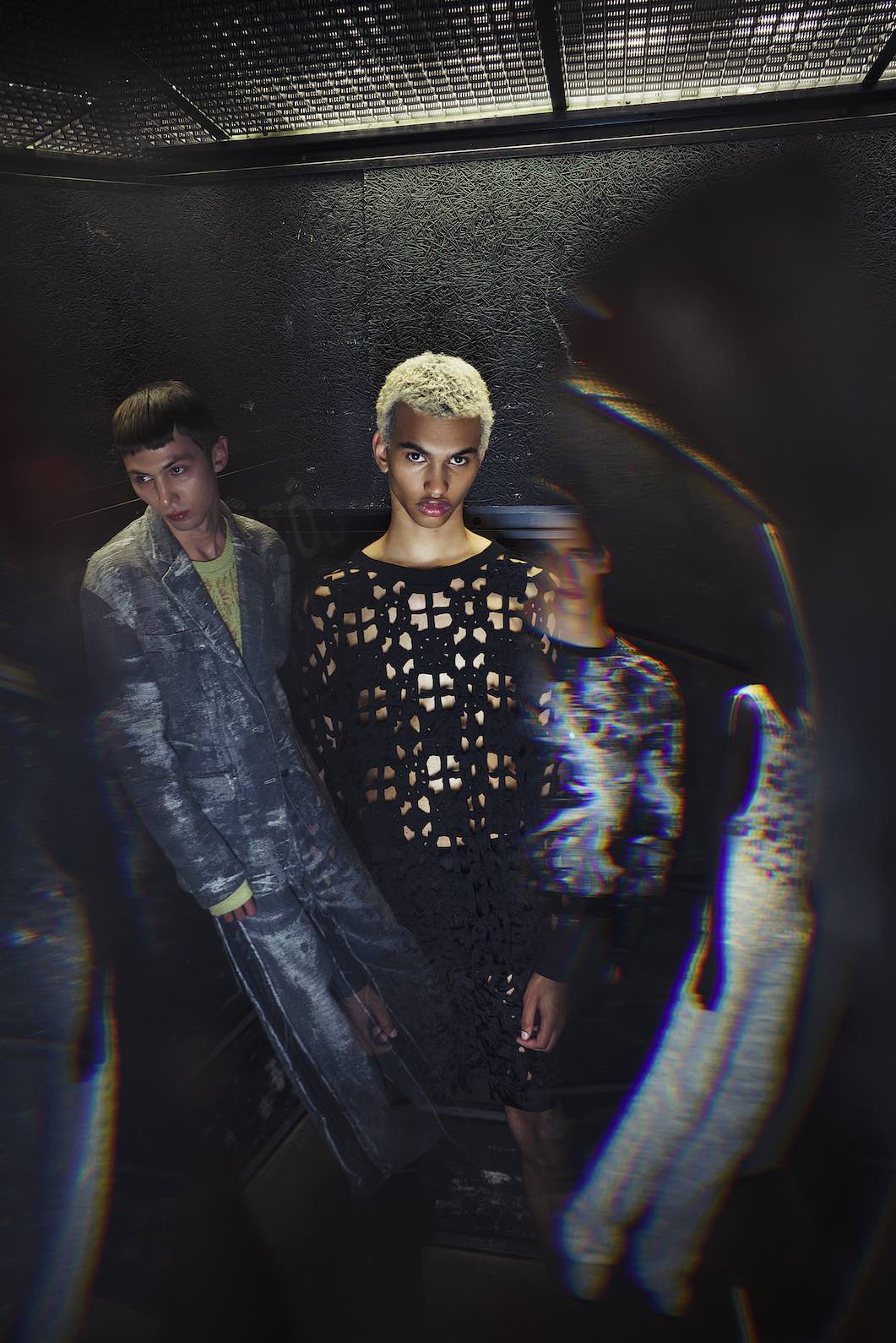
Can you talk about the importance of building a portfolio and online presence as a photographer? How has it benefited your career?
I truly believe that having a portfolio is essential to secure any job, even if you have a large following. I started as an influencer, and it was challenging for me to transition into being a photographer, even though I really wanted it.
My first portfolio was built in 2020. During this process, I began structuring my work in my mind, thinking about what I could offer to clients, and it significantly influenced my approach to photography. Subsequent shoots were done to create content for my website/portfolio.
Your online presence is crucial nowadays; it’s a must. But it’s essential to decide what you want to focus on, whether it’s blogging or being a photographer – just don’t forget this. There are many truly excellent works that go unnoticed, and that’s okay. However, the internet is a tool to bring more attention to your work.

Are there photographers or artists who have particularly influenced or inspired your work? If so, who are they and what aspects of their work do you admire?
I genuinely believe that being a photographer and drawing inspiration from other photographers is not inspiration; it’s imitation. That’s why I’m always open to connecting and getting to know people from various creative backgrounds. I think the development stories of different artists have had a significant influence on my creativity.
Artists like Lucio Fontana, Marcel Duchamp, and Malevich changed the approach to art. Each of them reimagined art. This approach can also be applied and projected onto our time and the field of photography. It’s more about a mindset. They were considered innovators of their time, and I still apply their mindset to today’s realities. This helps me recognize the value of the work I create or see every day.

Our magazine is also based in Asia. Have you ever traveled to any Asian countries? Do you have any favorite ones or you would like to visit and why?
I’ve been in Hong Kong, Shanghai and the Chinese National Park Zhangjiajie several times. I love Shanghai and the Chinese Park, always feel inspired there.
I’d like to visit Japan and South Korea. I truly believe that their perception of everything is different from the western’s one. It’s another level for me.

What upcoming projects or goals do you have as a photographer? Is there something new or exciting on the horizon that you’d like to share with your audience?
I plan to stay in Europe for the next few years and continue to develop myself as an independent photographer. In May 2024, I will be participating in a group photography exhibition in Paris, where I will present one of my existing works in print.
For me, there has never been a specific goal in photography, such as awards or achievements. I simply believe and have always believed that the most important thing is to stay engaged in the creative process, never lose that spark, and continue to create.
Follow Ernest Em work : @19tones


